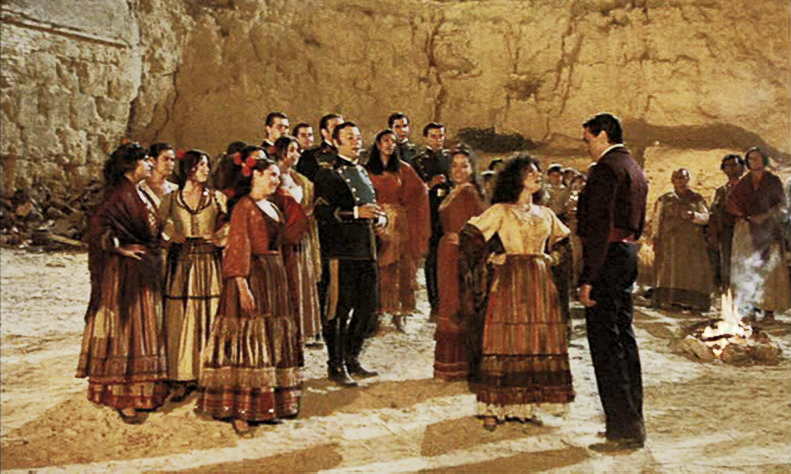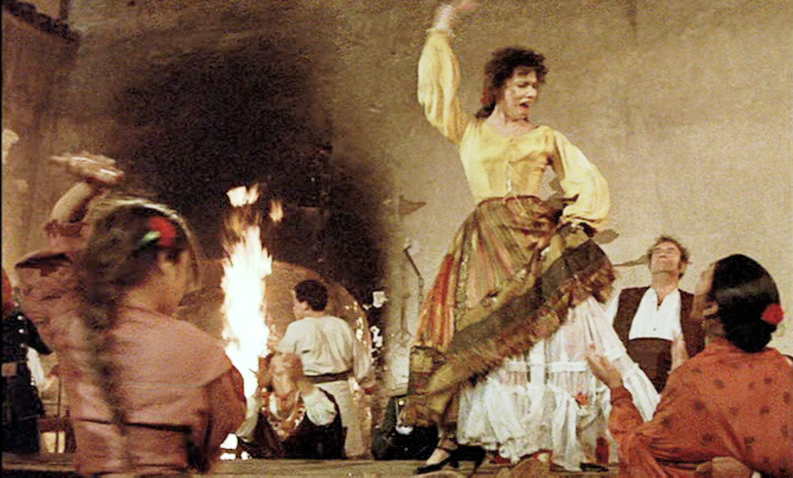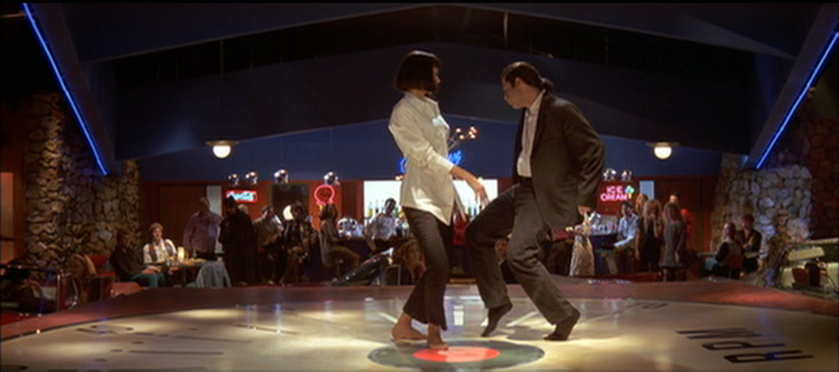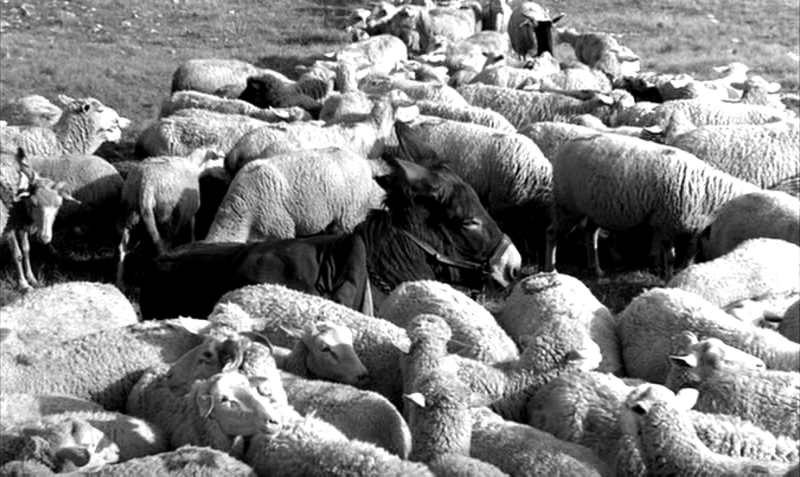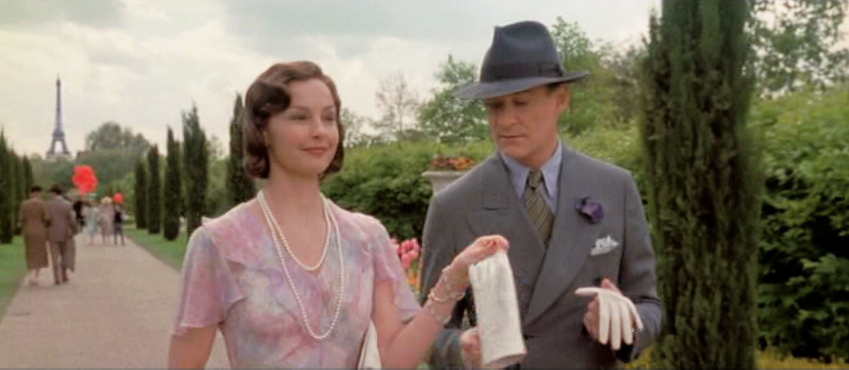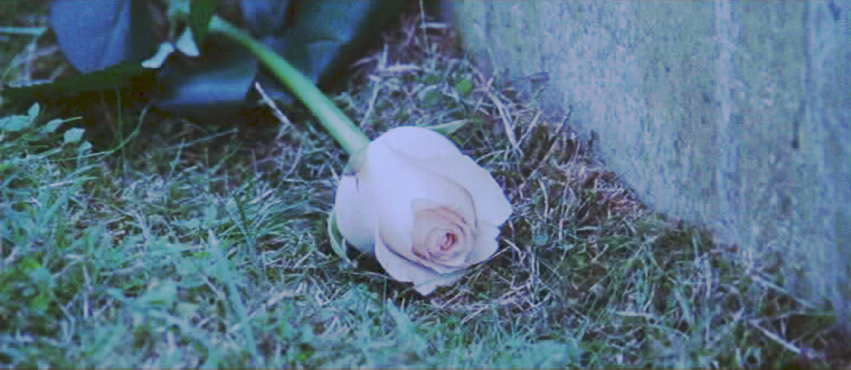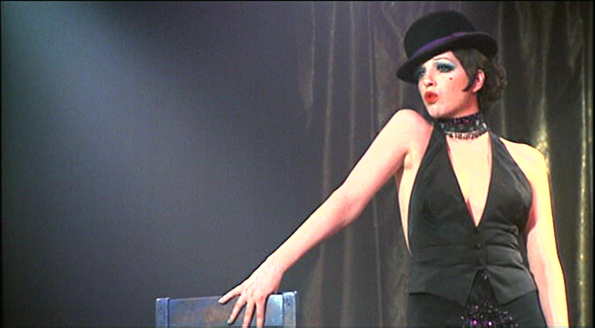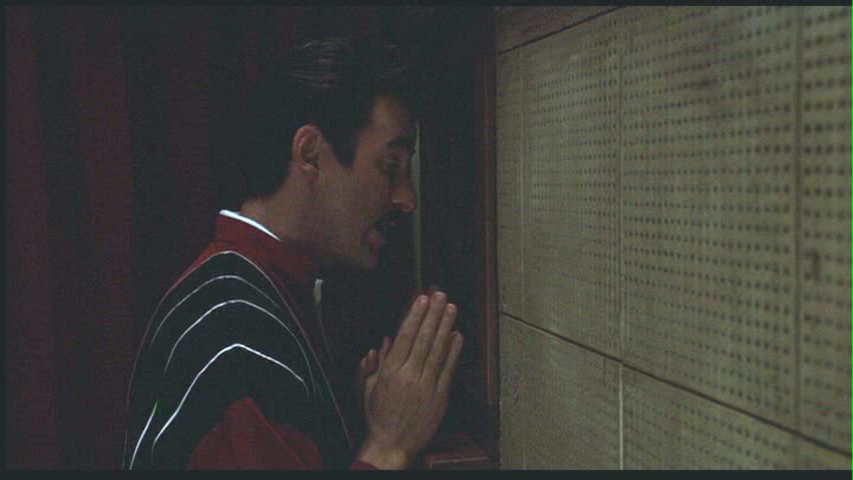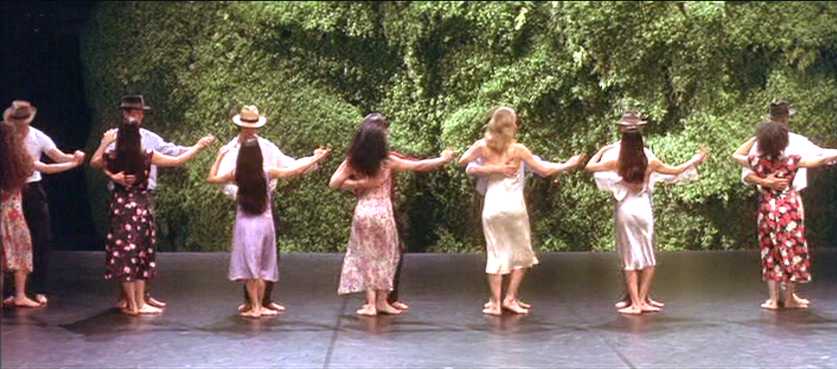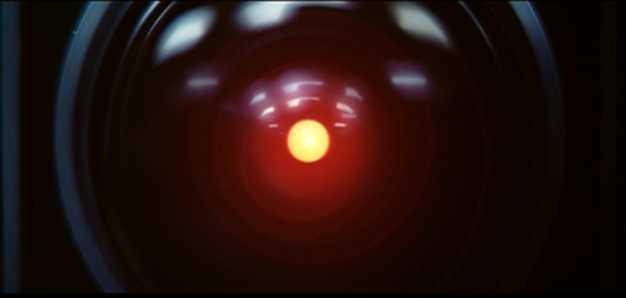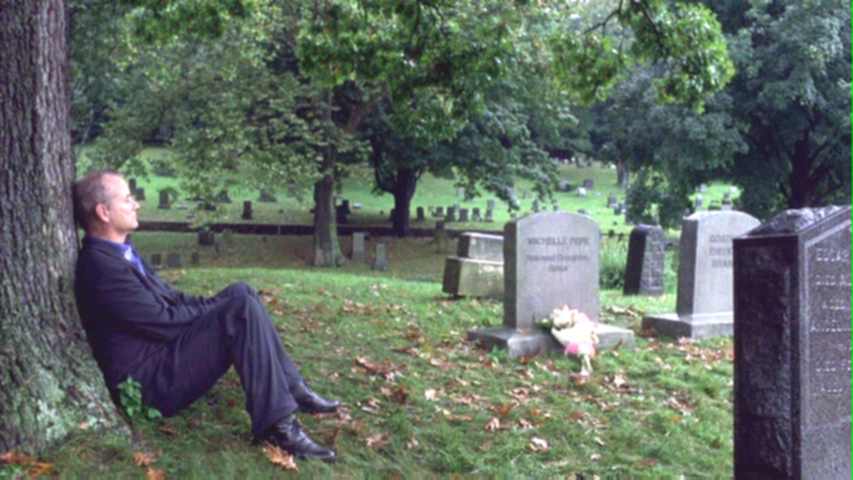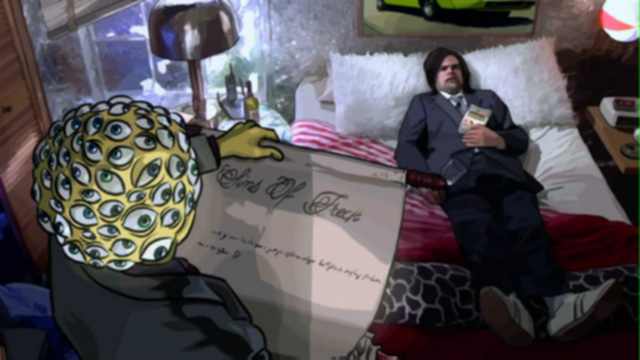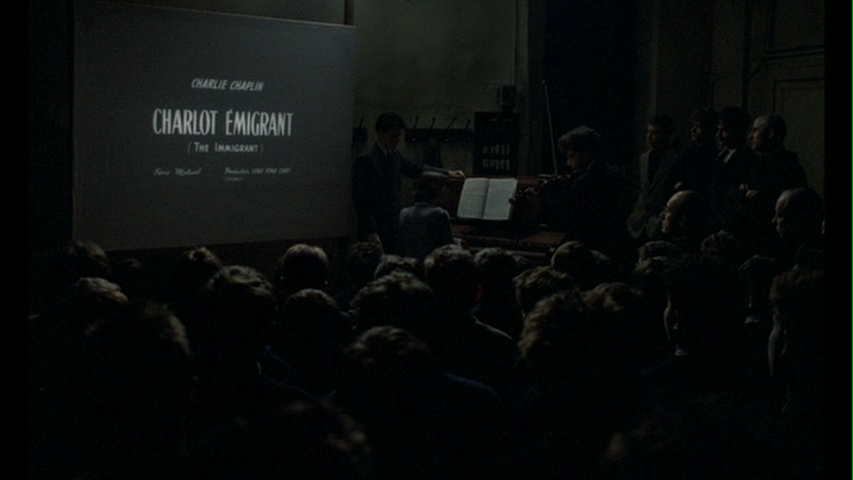
Monday, October 22, 2007
Charlot
The director is Louis Malle, the music is Rondo Capriocioso from Camille Saint Saens' Violin Concerto #3.


Monday, September 10, 2007
Anita
There is a bittersweet moment in this movie clip that I think is very Proustian a la "Recherche du Temps Perdu." The movie is Intervista, meaning "Interview" which is a pseudo autobiography of movie director Federico Fellini. Intervista is in Italian with English subtitle. I cannot easily extract the clip with the English subtitle so you have to see it without. The key feature really needs no words as it is pure magic. It is when Marcello Mastroianni in a Mandrake costume performed magic to bring back the lost time when young Marcello had a magic moment with then young and beautiful Anita Ekberg in the famous Trevi Fountain of Rome. The clip starts out with Fellini paying a surprise un-announced visit to an aging but still beautiful Anita Ekberg at her estate on the beach. Where did the time go? It is magic.
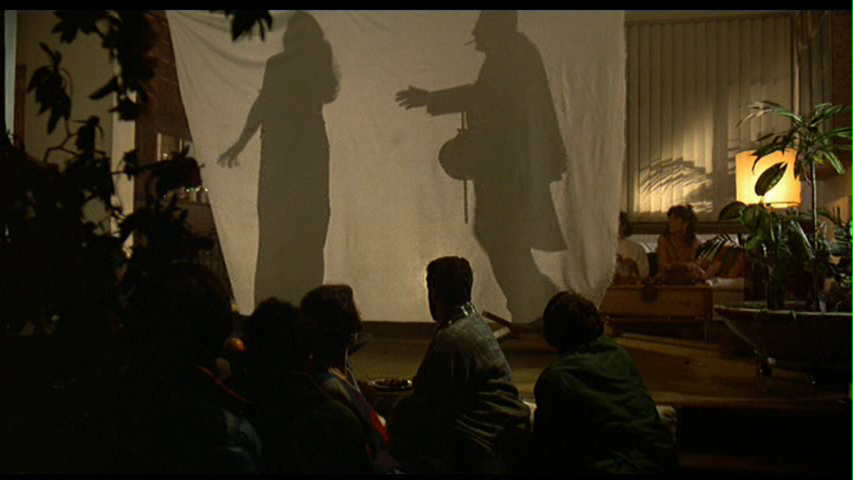

Sunday, August 12, 2007
Saturday, August 11, 2007
Friday, August 10, 2007
Forget Me Not
I need to get off my rocker chair and dust off my video tools to refurnish my blog here. It has been a long, long time... OK. Promised! Very soon! How about a musical? You like musical?
Monday, May 21, 2007
Tuesday, May 01, 2007
Nessun Dorma
Warning... Rated R, containing some nudity and images may be disturbing to some sensitive souls. This is from an old favorite movie of mine that I finally got around to revive. The clip contrasts gruesome scenes with beautiful and sensual allegorical images, all accompanied by a world class musical score with a happy ending.
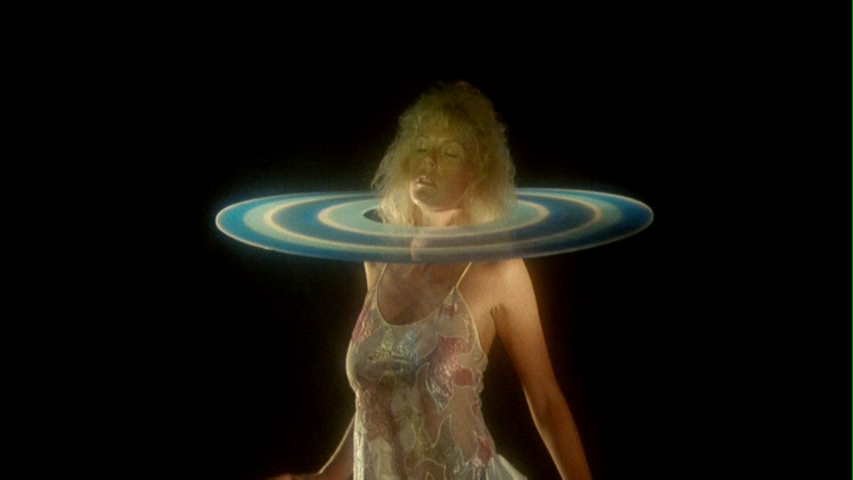

Sunday, April 08, 2007
Schubert Andantino
Saturday, April 07, 2007
Papaya salad
Here is a better illustration (than in an earlier similar blog) of one way Vietnamese papaya (Carica Papaya) salad is prepared. The garnish is beef jerky with sesame seeds. The sauce is flavored fish sauce spiced with fresh red pepper. At the end of the clip is a glimpse of another famous ingredient for a Vietnamese soup: the young flower buds of the "Thien-Ly" vine (Telosma Cordata or Odoratissima.) The "Thien-Ly" vine and its flowers are featured prominently in Vietnamese songs and poems romancing young love mainly because of its beautiful heart shaped leaves.
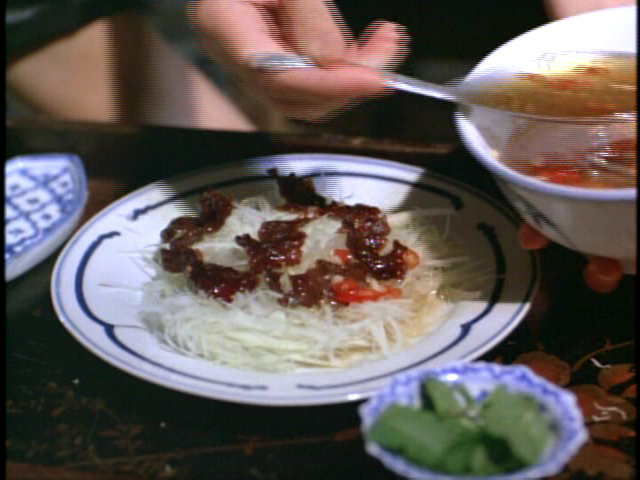

Saturday, March 31, 2007
Bunraku
The works of Chikamatsu Monzaemon (1653-1724) that skillfully describe the nature of humankind are performed as bunraku (a theater form originated in the sixteenth century uniting narration, music and puppets) and kabuki (a type of traditional Japanese theater in which men play female characters,) both of which are still familiar in today's Japan.
Bunraku, the traditional Japanese puppet theater (ningyo joruri) has a 400 year history. Bunraku was originally just the name of a theater troop that performed puppetry, but over time, the word evolved to indicate ningyo joruri itself, and it is now the official name of this form of puppetry. It is a style peculiar to Japan, in which the recitations of a male narrator, shamisen music performance and puppetry are united.
Bunraku features the superior literariness of gidayu, a style of reciting dramatic narratives, the highly qualified musicality, artistry, and dynamic sound of the thick-necked shamisen and the technique required for 3 puppeteers to handle 1 puppet (in Chikamatsu's time, puppets were smaller than they currently are, so each puppet was handled by one puppeteer). Its high quality and sensitive expressiveness and interpretation describe feelings of affection in a realistic manner.
Additionally, the precision of the heads, wigs and clothing of the puppets, together with the set decorations, lighting and sound effects blend to create a peculiar beauty in the theater space. Those who have seen this form of puppetry say it's unparalleled anywhere in the world, and it often overwhelms the audience.
This is a bunraku puppet theater scene from "Meido no Hikyaku " (Messenger from Hell) that opens a movie by legendary director and actor Takeshi Kitano. The puppet show does have very poetic narration. Since overlaying the subtitle takes too much time that I do not currently have, below you can read the words that accompany the puppets' actions...
The scene depicts a messenger distressed because his beloved is being sold to another man, while the courtesan laments the fact that the other man wanted to buy her with money. Bunraku uses several operators in luxurious kimonos: A story teller, the "tayu." The singer "joruri" sits behind the scene and interprets all the characters in the play. The music is by a sole musician playing a "shamisen" which is a kind of three string guitar. The musician not only plays the music score but he also creates sound effects such as rain, wind etc... Each puppet which can be as large as 4' or 5' is handled by three male operators. The Master Operator "omozukai" appears full face and he takes care of the facial expressions of the puppet (movements of the eyes, eye brows and mouth which can all move;) and the right arm. His first assistant handles the left arm and his second assistant is in charge of the legs, or the clothing of the female characters who do not have legs. The assistants wear black and black hoods.
Here are the words of "Messenger from Hell:"
I beg you
Calm your heart
Do not be a slave
To such miserable feelings
Who has put you in this state?
No one else...
No other than I...
I, Umekawa...
I am to blame for all
Should I be grateful?
Or should I lament?
I don't know
Cries...
Read my heart
Bowed in touching distress
She cried anguish tears
Onto the pieces of gold
The coins soon resembled
Beautiful and bright kerria flowers
All covered with dew
Bathed in her tears
The coins sparkled brilliantly
Second act...
....
Honor, glory and fortune
Are only fleeting grains of sand
Their traces become dust
Scattered on the roads to Yamato
To be forever trampled on.
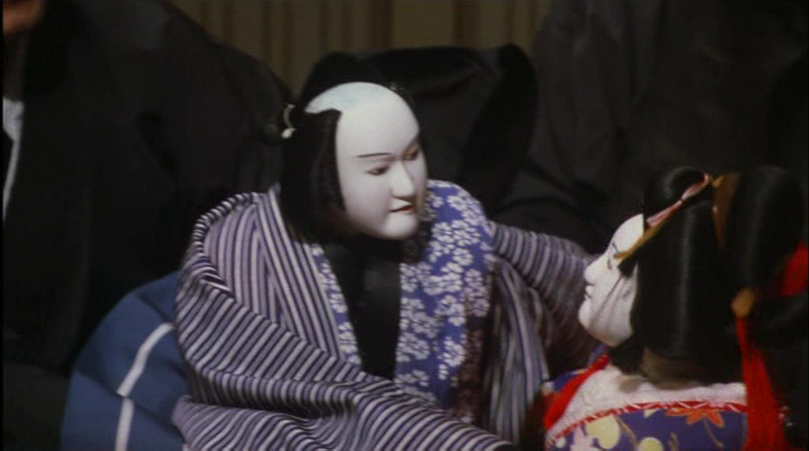
Bunraku, the traditional Japanese puppet theater (ningyo joruri) has a 400 year history. Bunraku was originally just the name of a theater troop that performed puppetry, but over time, the word evolved to indicate ningyo joruri itself, and it is now the official name of this form of puppetry. It is a style peculiar to Japan, in which the recitations of a male narrator, shamisen music performance and puppetry are united.
Bunraku features the superior literariness of gidayu, a style of reciting dramatic narratives, the highly qualified musicality, artistry, and dynamic sound of the thick-necked shamisen and the technique required for 3 puppeteers to handle 1 puppet (in Chikamatsu's time, puppets were smaller than they currently are, so each puppet was handled by one puppeteer). Its high quality and sensitive expressiveness and interpretation describe feelings of affection in a realistic manner.
Additionally, the precision of the heads, wigs and clothing of the puppets, together with the set decorations, lighting and sound effects blend to create a peculiar beauty in the theater space. Those who have seen this form of puppetry say it's unparalleled anywhere in the world, and it often overwhelms the audience.
This is a bunraku puppet theater scene from "Meido no Hikyaku " (Messenger from Hell) that opens a movie by legendary director and actor Takeshi Kitano. The puppet show does have very poetic narration. Since overlaying the subtitle takes too much time that I do not currently have, below you can read the words that accompany the puppets' actions...
The scene depicts a messenger distressed because his beloved is being sold to another man, while the courtesan laments the fact that the other man wanted to buy her with money. Bunraku uses several operators in luxurious kimonos: A story teller, the "tayu." The singer "joruri" sits behind the scene and interprets all the characters in the play. The music is by a sole musician playing a "shamisen" which is a kind of three string guitar. The musician not only plays the music score but he also creates sound effects such as rain, wind etc... Each puppet which can be as large as 4' or 5' is handled by three male operators. The Master Operator "omozukai" appears full face and he takes care of the facial expressions of the puppet (movements of the eyes, eye brows and mouth which can all move;) and the right arm. His first assistant handles the left arm and his second assistant is in charge of the legs, or the clothing of the female characters who do not have legs. The assistants wear black and black hoods.
Here are the words of "Messenger from Hell:"
I beg you
Calm your heart
Do not be a slave
To such miserable feelings
Who has put you in this state?
No one else...
No other than I...
I, Umekawa...
I am to blame for all
Should I be grateful?
Or should I lament?
I don't know
Cries...
Read my heart
Bowed in touching distress
She cried anguish tears
Onto the pieces of gold
The coins soon resembled
Beautiful and bright kerria flowers
All covered with dew
Bathed in her tears
The coins sparkled brilliantly
Second act...
....
Honor, glory and fortune
Are only fleeting grains of sand
Their traces become dust
Scattered on the roads to Yamato
To be forever trampled on.

Friday, March 16, 2007
Papaya & Gac
In this clip, if you do not blink and pay attention, you may be able to witness a modern day rendering of the traditional way Vietnamese women prepare meals in their homes. On the far right, you may be able to make out the preparation of a famous and delicious green papaya salad. The woman first peels the green papaya and then uses a hand shredder to shred it into long threads for the salad. In the middle is a rare close up viewing of a fruit named "Gac (Momordica Cochinchinensis Spreng)" whose highly pigmented seeds are used to provide the briliantly decorative color red in various dishes. There are no tables and they prepare their food, outdoors, at ground level, sitting on tiny stools.
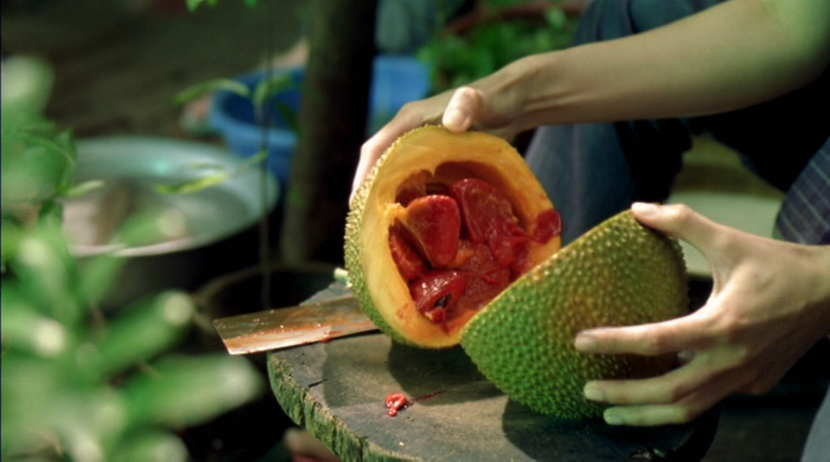

Thursday, March 15, 2007
Easy To Love
Wednesday, March 14, 2007
Friday, February 23, 2007
That's Entertainment
Der treue Hussar
If you wonder why sometimes grown men cry, and you will see plenty of it here, it is from the words of the song sung by Christiane Harlan at the end of the video clip. She was the movie director Stanley Kubrick's wife. Yes, this is another clip from Kubrick... and here is the translation of...
"The Faithful Soldier" - or Der treue Hussar (in German)
A faithful soldier, without fear,
He loved his girl for one whole year,
For one whole year and longer yet,
His love for her, he'd ne'er forget.
This youth to foreign land did roam,
While his true love, fell ill at home.
Sick unto death, she no one heard.
Three days and nights she spoke no word.
And when the youth received the news,
That his dear love, her life may lose,
He left his place and all he had,
To see his love, went this young lad...
He took her in his arms to hold,
She was not warm, forever cold.
Oh quick, oh quick, bring light to me,
Else my love dies, no one will see...
Pallbearers we need two times three,
Six farmhands they are so heavy.
It must be six of soldiers brave,
To carry my love to her grave.
A long black coat, I must now wear.
A sorrow great, is what I bear.
A sorrow great and so much more,
My grief it will end nevermore.
This clip will pop up a separate window so you can read the words in parallel. Ain't that nice?
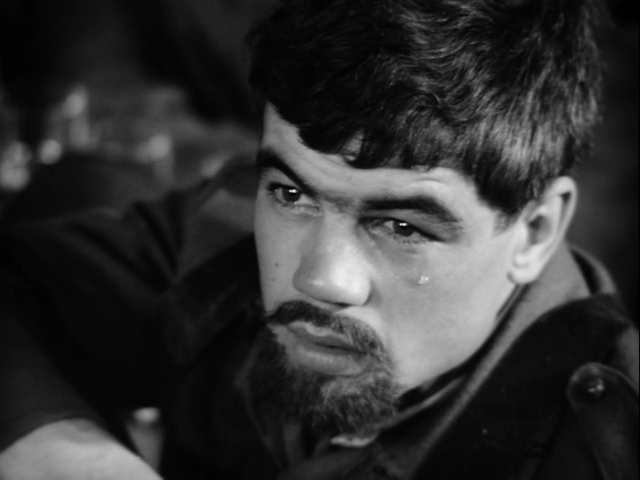
This sentiment is universal, especially during war time. Here is another partial translation of a famous love poem from a war torn country: The color purple of the Downy Rose Myrtle...

Getting married during war time
Many may not return
If I cannot return
I feel
for the fragile wife
awaiting me at home
But the soldier
does not perish at the hellish front
Yet
the little girl died at home
I return
to her absence
My mother sat at the grave in the dark shadow
near the wedding flower vase
now containing the burning incense
enveloped in faded coldness
Her dark hair
short due to her young age
My love, your last moments
we could not share our whispers
we could not share our last glances
She used to love the purple downy rose myrtle flowers
Her dress always of myrtle purple color
Once upon a time
The late night lamp
casting a tiny shadow
you mended your husband's old shirt
Once upon a time....
That's it! Good night!
"The Faithful Soldier" - or Der treue Hussar (in German)
A faithful soldier, without fear,
He loved his girl for one whole year,
For one whole year and longer yet,
His love for her, he'd ne'er forget.
This youth to foreign land did roam,
While his true love, fell ill at home.
Sick unto death, she no one heard.
Three days and nights she spoke no word.
And when the youth received the news,
That his dear love, her life may lose,
He left his place and all he had,
To see his love, went this young lad...
He took her in his arms to hold,
She was not warm, forever cold.
Oh quick, oh quick, bring light to me,
Else my love dies, no one will see...
Pallbearers we need two times three,
Six farmhands they are so heavy.
It must be six of soldiers brave,
To carry my love to her grave.
A long black coat, I must now wear.
A sorrow great, is what I bear.
A sorrow great and so much more,
My grief it will end nevermore.
This clip will pop up a separate window so you can read the words in parallel. Ain't that nice?

This sentiment is universal, especially during war time. Here is another partial translation of a famous love poem from a war torn country: The color purple of the Downy Rose Myrtle...

Getting married during war time
Many may not return
If I cannot return
I feel
for the fragile wife
awaiting me at home
But the soldier
does not perish at the hellish front
Yet
the little girl died at home
I return
to her absence
My mother sat at the grave in the dark shadow
near the wedding flower vase
now containing the burning incense
enveloped in faded coldness
Her dark hair
short due to her young age
My love, your last moments
we could not share our whispers
we could not share our last glances
She used to love the purple downy rose myrtle flowers
Her dress always of myrtle purple color
Once upon a time
The late night lamp
casting a tiny shadow
you mended your husband's old shirt
Once upon a time....
That's it! Good night!
Monday, January 22, 2007
Porunca noua dau voua...
Warning... The American Motion Picture Association of America (MPAA) has rated the movie Eyes Wide Shut "R." The segments shown here contain scenes with female nudity... not that they are terribly bad or of bad taste. You be the judge.
It has been quite a long time since I was lured into the laziness of not doing any writing. Instead, I let the video and sometime the music do all the talking. Time for a change so I sharpened my pencils and my tongue for a new dialog, the first one of the new year 2007.
As a Chirstmas present, I received a BFI modern classics book authored by Michel Chion. BFI, in case you don't know, stands for British Film Institute; and its modern classics is a series of critical studies of films (motion pictures) produced over the last 30 years. BFI books cover many movies that I have in my repertoire, such as 10, Amores Perros, Blade Runner, Bombay, The Exorcist, Groundhog Day, The Idiots, Jaws, L.A. Confidential, L'Argent, Nosferatu, Pulp Fiction etc... too many more to mention here. Incidentally, if you think you have seen something familiar from one of the names above, check out my "Time To Die" video clip somewhere in this space, in December 2006.
The book I received is about a movie, an old one that stayed in my queue to watch ever since it came out on DVD: Stanley Kubrick's Eyes Wide Shut. Kubrick was one of my favorite movie director, so I of course have all his movies, but for whatever reason, I have never watched Eyes Wide Shut, until now, that is... after I read the BFI book. As I rarely agree with (or understand) movie reviews or analysis, I had no qualms to read the analysis of this movie BEFORE finding time to watch it. So I did read the book in its entirety, which took me a few days, putting it down and picked it up again different times. I never knew how convoluted movie making could be psycho-analyzed to this degree, but this is highly entertaining reading material. I always place movie music interest high on my list of things to find out about a movie, and the sound track of this movie is no exception. The final push I needed to pull Eyes Wide Shut out of my hard drives to watch it NOW is the reference to the music on page 33 of the book:
"...Pook created a sort of 'world music'.... with a male voice played backwards evoking some kind of eastern priests."
Say what? I've got to check this out.
As usual, the version I have of this movie is an "American sanitized" one that is less saucy than the original version made by the movie director. Even with that in mind, the segments of video in question here contain female nudity that has earned the movie an R rating.
Well, readers, you have been warned: "Do not enter unless your heart really desires!" But this is quite interesting, you'll see and you may even agree. Read on...
The name Pook refers to Jocelyn Pook, who can be traced to an album named "Flood" released in 1999. Pook is a contemporary classical composer and violinist who divides her time between avant garde scores and pop collaborations. Track 6 of the "Flood" CD is the composition "Masked Ball" used by Kubrick in Eyes Wide Shut's beginning of the orgy scene. It is 6:09 minute in length. So here it is, check it out and come back to this page... to read on...
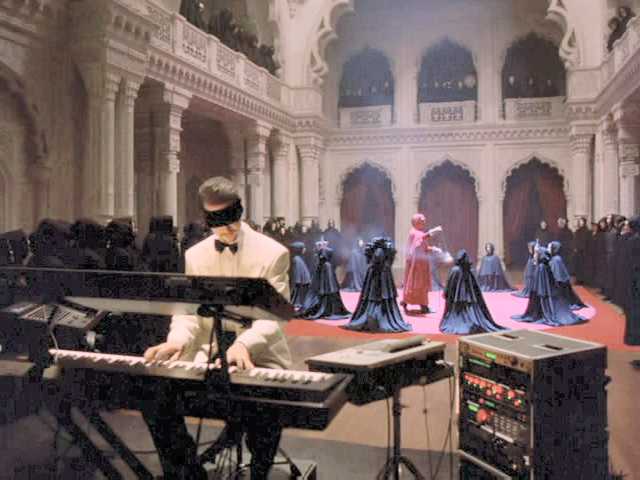
At the request of Kubrick, Pook adapted her earlier work named "Backwards Priests" to produce "Masked Ball" in which the chanting heard is the sound track of Romanian priest chanting played backwards.
You can imagine that this is going to require serious technical work to get to the bottom of all this intriguing behind the scene secrets. First, how do you play a sound track backwards? Hmmmm... This is not rocket science, so after a few waves of my magic wand, I listen to the entire 6:09 minutes of the secret sound track, but it was no real big help! What are they talking (chanting) about??? It turned out that I am not the only person trying to decipher this mystery and I found some discussions giving away the answers to the Romanian chant of priests. As it is cruel for me to leave you in the dark, here it is, fully explained...
The chant is Romanian, and plus or minus a few typos/errors, it says:
"Zisa Domnului catre ucenicii sai...Porunca noua dau voua...
Domnului sa ne rugam pentru mila, viata, pacea, sanatatea, mantuirea, cercetarea, lasarea si iertarea pacatelor robilor lui Dumnezeu. Inchinatori, miluitori si binefacatori ai sfantului lacasului acestuia."
In the reversed video below, you can hear the chant reciting the words above. The first phrase is chanted in the lower tone, loosely translated as...
"And God told to his apprentices...I gave you a comand..."
This phrase is repeated several times during the 6:09 minutes which ended with a final repetition 8 times in solo. In four instances, this short and repetitive chant is accompanied by the higher pitch voice chanting the second part that says...
"Pray to the Lord for the mercy, life, peace, health, salvation, the search, the leave and the forgiveness of the sins of God's children. The ones that pray, they have mercy and they take good care of this holy place."
which was repeated a total of 4 times during the segment.
And here it is... This one opens a new window so you can hear the chant and read the text on this page at the same time. You will need to allow new window to pop up, a small price to pay.
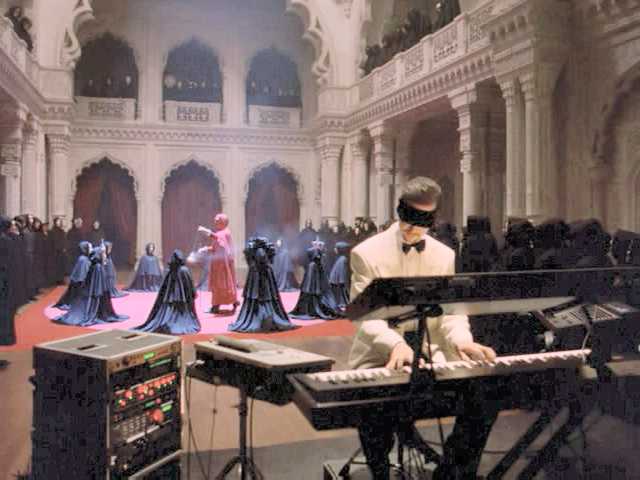
Evidently, this is one of the movies that you can only appreciate by multiple viewings. My favorite clip? Since you asked, take a peek...
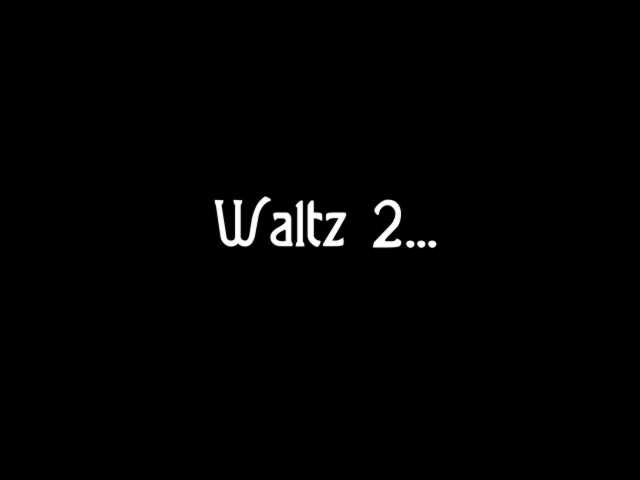
Can you SEE while your eyes are wide shut? Be patient! Wait! Is the screen really black? Are you sure? Keep your Eyes Wide Shut, you'll see!
The music you hear is used at the beginning and at the end of the movie: Waltz 2 by Dmitri Shostakovich's Suite for Variety Stage Orchestra, which is one of the two main themes selected by Kubrick. Georgeous.
It has been quite a long time since I was lured into the laziness of not doing any writing. Instead, I let the video and sometime the music do all the talking. Time for a change so I sharpened my pencils and my tongue for a new dialog, the first one of the new year 2007.
As a Chirstmas present, I received a BFI modern classics book authored by Michel Chion. BFI, in case you don't know, stands for British Film Institute; and its modern classics is a series of critical studies of films (motion pictures) produced over the last 30 years. BFI books cover many movies that I have in my repertoire, such as 10, Amores Perros, Blade Runner, Bombay, The Exorcist, Groundhog Day, The Idiots, Jaws, L.A. Confidential, L'Argent, Nosferatu, Pulp Fiction etc... too many more to mention here. Incidentally, if you think you have seen something familiar from one of the names above, check out my "Time To Die" video clip somewhere in this space, in December 2006.
The book I received is about a movie, an old one that stayed in my queue to watch ever since it came out on DVD: Stanley Kubrick's Eyes Wide Shut. Kubrick was one of my favorite movie director, so I of course have all his movies, but for whatever reason, I have never watched Eyes Wide Shut, until now, that is... after I read the BFI book. As I rarely agree with (or understand) movie reviews or analysis, I had no qualms to read the analysis of this movie BEFORE finding time to watch it. So I did read the book in its entirety, which took me a few days, putting it down and picked it up again different times. I never knew how convoluted movie making could be psycho-analyzed to this degree, but this is highly entertaining reading material. I always place movie music interest high on my list of things to find out about a movie, and the sound track of this movie is no exception. The final push I needed to pull Eyes Wide Shut out of my hard drives to watch it NOW is the reference to the music on page 33 of the book:
"...Pook created a sort of 'world music'.... with a male voice played backwards evoking some kind of eastern priests."
Say what? I've got to check this out.
As usual, the version I have of this movie is an "American sanitized" one that is less saucy than the original version made by the movie director. Even with that in mind, the segments of video in question here contain female nudity that has earned the movie an R rating.
Well, readers, you have been warned: "Do not enter unless your heart really desires!" But this is quite interesting, you'll see and you may even agree. Read on...
The name Pook refers to Jocelyn Pook, who can be traced to an album named "Flood" released in 1999. Pook is a contemporary classical composer and violinist who divides her time between avant garde scores and pop collaborations. Track 6 of the "Flood" CD is the composition "Masked Ball" used by Kubrick in Eyes Wide Shut's beginning of the orgy scene. It is 6:09 minute in length. So here it is, check it out and come back to this page... to read on...

At the request of Kubrick, Pook adapted her earlier work named "Backwards Priests" to produce "Masked Ball" in which the chanting heard is the sound track of Romanian priest chanting played backwards.
You can imagine that this is going to require serious technical work to get to the bottom of all this intriguing behind the scene secrets. First, how do you play a sound track backwards? Hmmmm... This is not rocket science, so after a few waves of my magic wand, I listen to the entire 6:09 minutes of the secret sound track, but it was no real big help! What are they talking (chanting) about??? It turned out that I am not the only person trying to decipher this mystery and I found some discussions giving away the answers to the Romanian chant of priests. As it is cruel for me to leave you in the dark, here it is, fully explained...
The chant is Romanian, and plus or minus a few typos/errors, it says:
"Zisa Domnului catre ucenicii sai...Porunca noua dau voua...
Domnului sa ne rugam pentru mila, viata, pacea, sanatatea, mantuirea, cercetarea, lasarea si iertarea pacatelor robilor lui Dumnezeu. Inchinatori, miluitori si binefacatori ai sfantului lacasului acestuia."
In the reversed video below, you can hear the chant reciting the words above. The first phrase is chanted in the lower tone, loosely translated as...
"And God told to his apprentices...I gave you a comand..."
This phrase is repeated several times during the 6:09 minutes which ended with a final repetition 8 times in solo. In four instances, this short and repetitive chant is accompanied by the higher pitch voice chanting the second part that says...
"Pray to the Lord for the mercy, life, peace, health, salvation, the search, the leave and the forgiveness of the sins of God's children. The ones that pray, they have mercy and they take good care of this holy place."
which was repeated a total of 4 times during the segment.
And here it is... This one opens a new window so you can hear the chant and read the text on this page at the same time. You will need to allow new window to pop up, a small price to pay.

Evidently, this is one of the movies that you can only appreciate by multiple viewings. My favorite clip? Since you asked, take a peek...

Can you SEE while your eyes are wide shut? Be patient! Wait! Is the screen really black? Are you sure? Keep your Eyes Wide Shut, you'll see!
The music you hear is used at the beginning and at the end of the movie: Waltz 2 by Dmitri Shostakovich's Suite for Variety Stage Orchestra, which is one of the two main themes selected by Kubrick. Georgeous.
Friday, January 19, 2007
Tuesday, January 16, 2007
Sunday, January 14, 2007
Thursday, January 11, 2007
Subscribe to:
Comments (Atom)



